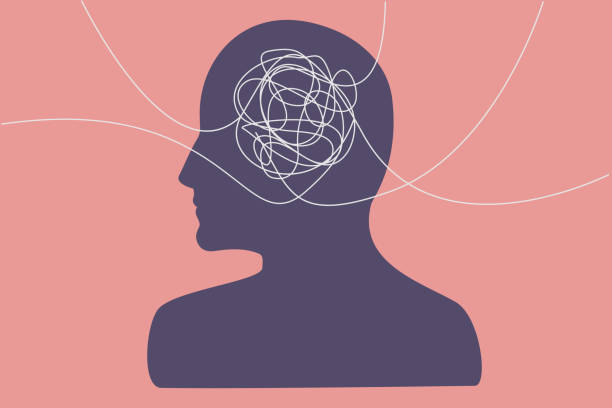Sudden Altered Mental Status (AMS): Everything you wish to know
Sudden altered mental status is a condition in which normal functioning of the brain is disrupted, prompting a behavior change. This change can occur abruptly or over time. This mental confusion can range from subtle confusion to absolute confusion and extreme levels of sleepiness, leading to coma.
Altered mental status (AMS) is a sudden and intense crisis of confuse due to rapid changes in brain function. It can appear due to physical or mental causes. AMS is in most cases temporary and reversible. What is this thing called “Sudden Altered Mental Status (AMS)”? AMS involves the sudden transition of the psychological state (eg. from lethargy to restlessness and back to lethargy) and manifests itself with varying symptoms.
AMS is caused by various factors such as psychological, physical, environmental, to mention a few. This mental condition is more common among older adults and is mainly attributed to the factors discussed above. Below are some of the most typical causes of AMS to people of all ages.
* Changes in alert levels; usually increased alertness in the morning and less alert in the evening
* Changes in the senses and perception
* Changes in levels of consciousness
* Changes in movement; slowness or hyperactivity
* Changes in sleep patterns (eg. drowsiness)
* Confusion regarding space and time
* Weakness in short-term memory
* Disorganization of thinking (eg. difficult speech)
* Changes in behavior; anger, aggression, depressed mood, irritability, excessive joy)
* Incontinence
* Involuntary movements due to dysfunction of the nervous system
* Lack of concentration
What can cause AMS? Psychiatric causes of AMS
* Dementia
* Delirium
* Psychosis
* Mood disorders
Organic causes of AMS – Drugs | Toxins
* Opioids
* Antipsychotics
* Sedative-hypnotics
* Lithium
* Antihistamines
* Anticholinergics
* Polypharmacy
* Drugs of abuse
* Withdrawal states
* Toxins; toxic alcohols, CO, cyanide, mushrooms
Medication-related syndromes
- Valproic acid (hyperammonemia)
- Serotonin syndrome
- NMS
- Sepsis
- Fever-related delirium
- Occult infection
- Meningitis/ encephalitis
- Neurosyphilis
- Diseases or conditions within the body that can disrupt your brain and nervous system:
- Urinary tract infection (renal failure)
- Heart attack
- Adrenal gland disease
- Hypoxia
- High blood sugar levels
- Low blood sugar levels
- Diabetic ketoacidosis
Neurologic
- Diseases in Your Skull
- Brain disease
- Seizures
- Concussions
- Strokes
- Head traumas
- Additional factors
- Carbon monoxide
- Burns
- Hypothermia
- Hyperthermia
- Psychiatric issues
- Poisonous plants, such as mushrooms
- CVA
- Head injury; concussion, bleed, diffuse axonal injury
- Subarachnoid bleed
- Neoplasm
- Hypertensive encephalopathy
- Anoxic brain injury
Trauma
- Burns
- Electrocution
- Systemic inflammatory response
- Fat embolism
- Occult trauma
A change in medication, hip fractures, heart attacks, especially among older adults, can increase the risk of contracting this life-threatening mental condition. The risk can be further enhanced by diseases like pneumonia, urinary tract infections, and more.
A perennial medical record of heart issues, psychiatric problems, diabetes, among other conditions, can also escalate the risk for AMS.
Metabolic Causes
* Acidosis
* CO2 increase
* O2 decrease
* Hepatic encephalopathy
* Uremia
* Endocrine; hypoglycemia, hyperglycemia,
* Nutritional; Wernicke’s, B12 deficiency
Of course, you and those connected to you will discover a sudden change in the way you think, the way you carry yourself, your concentration, movements, and so on. The following are the most typical signs of AMS:
- Reduced levels of concentration
- Extreme levels of forgetfulness
- Irregular sleep patterns and hallucination
- Slow responses
- Failure to follow logical requests
- Rambling speech
- Difficulty in arousing from sleep
- Increased movement
- Reduced movement
Diagnosis
In order to determinate AMS, a neurological and neuropsychological evaluation is needed, based on examinations and tests related to the sensory and cognitive function of the individual.

Your physician will determine your mental status before asking you and your family about your usual behavioral state. They will be eager to understand the manner in which changes happened.
Did the changes happen suddenly or over time? They will be keen to learn about your latest events, such as illnesses, traumas, falls, etc. To ascertain the changes, the healthcare provider may want to confirm this from a third party. They will further dig deep to establish the kind of medicines you take and any issues with substance misuse. They will undertake a physical exam. The physician can perform any of the following tests to determine the cause of your AMS:
- Blood tests are performed to check whether essential organs, such as the liver, kidney, and lungs, are functioning accordingly. In addition, they will help establish whether your body has an infection or other toxins. At the same time, glucose levels will be evaluated.
- A CT scan also referred to as a CAT scan, is performed to capture the images of a patient’s head. All the issues your brain might have, including swelling, tumor, or bleeding, will be captured in a CAT scan.
- A neurological test helps the physician to determine if you are enduring problems with your brain. When performing a neurological examination, the healthcare provider will also test your reflexes.
- A chest x-ray captures the image of the heart and lungs. Physicians rely on x-rays to search for signs of infections, like pneumonia, which could be the primary cause of your AMS.
Who is more susceptible?
AMS is more common in hospitalized patients. Very young and elderly ones, as well as those with a history of delirium or brain damage are more likely to have an AMS episode than the general population.
What do you do to help manage AMS?
The basis of AMS management is the removal of subjective etiology. In many cases, this means treatment of the infection or resolution of the metabolic, electrolyte or endocrine abnormalities. Any possible drug for causing AMS should be discontinued, with pay attention to those with anticholinergic properties, opiates and benzodiazepines. However, there is always the question of how to practically manage the patient with acute confusion, who, whatever the cause puts himself in danger pulling catheters climbing on the bed and falling.
Bottom Line
Sudden altered mental status is a severe mental condition that can ruin and even threaten your life if appropriate care is not immediately. This condition can be easily detected as it involves an abrupt behavior change. Once you suspect that you are suffering from altered mental status, consider visiting your healthcare provider for a diagnosis.





